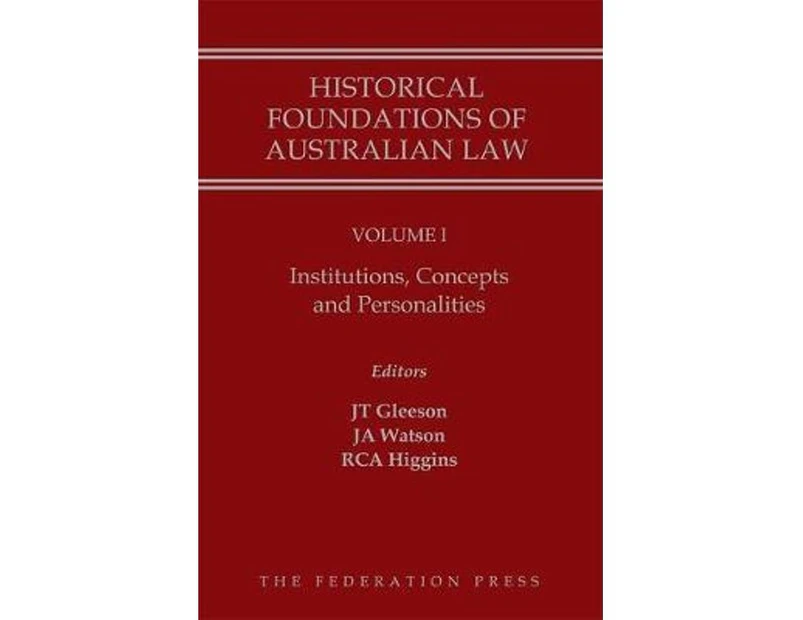Historical Foundations of Australian Law - Volume I : Institutions, Concepts and Personalities

Historical Foundations of Australian Law - Volume I : Institutions, Concepts and Personalities
ISBN: 9781862879058
Publication Date: 3 July 2013
The history underlying and informing the Australian legal system is a uniquely interesting amalgam of English, American and local developments. It is often poorly understood – not least because there are no modern counterparts to this volume and its companion on commercial law. But, as Holmes long ago pointed out, in order to know what the law is we must first know what it has been. This volume not only discharges that function, informing its readers clearly and lucidly, but it also demonstrates how Australian legal history may be examined from a range of perspectives, leading to a deeper and richer understanding. This first volume of 15 essays, by distinguished judges and practitioners, sets the very highest standards of analysis and scholarship. There are incisive assessments of key figures such as Sir Owen Dixon and Justice Joseph Story (by Justices Hayne and Allsop respectively), and of key developments such as the establishment of an Australian land law, the reception of the common law, the growth to nationhood, the changing role of precedent, and the separation of powers. There are essays on the very early influences on Australian law from the leading early texts (Glanvill and Bracton), from early English statutes and from Roman law. There are essays on the growth of equity, and even a modern dialogue (in accordance with an ancient tradition) on the Judicature legislation. And there are accounts of legal procedure, which is ultimately the source of much substantive law, and of the jurisprudential figures who have sought to analyse law. The introductory essay by Justin Gleeson and James Watson provides an overview of the volume, as well as being a powerful argument for why an understanding of legal history is not optional but essential. Three of the authors ...
